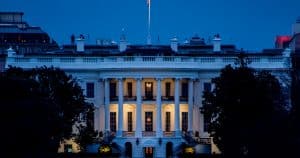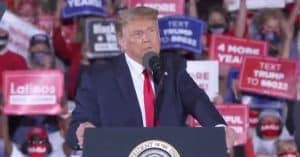The verdict is in: Jack Smith can access Donald Trump’s Twitter in landmark ruling
In a landmark decision, the U.S. Court of Appeals for Washington, D.C., has granted Special Counsel Jack Smith access to former President Donald Trump's Twitter account. This move is part of an ongoing investigation into alleged interference in the 2020 election.
A federal appeals court has permitted Special Counsel Jack Smith to investigate former President Donald Trump's Twitter account, a decision contested by Twitter and potentially heading to the Supreme Court.
The decision, made on Tuesday, marks a significant moment in the intersection of law, technology, and presidential privilege. It follows a lengthy legal battle between the Special Counsel and the social media giant, Twitter, which challenged the legality of this unprecedented access.
Background of the Legal Dispute
The initial ruling against Twitter by a three-judge panel in July set the stage for the full court's decision. Twitter's petition to rehear the case was subsequently rejected by the full court. This legal tussle has drawn attention for its potential implications on the boundaries of presidential communications and digital privacy.
Special Counsel Smith's investigation focuses on the actions and communications of Donald Trump during his presidency, particularly regarding the 2020 election. The contents of Trump's Twitter account, including tweets, direct messages, drafts, multimedia, and metadata, are considered critical for this investigation.
In compliance with a warrant, Twitter released a trove of data from Trump's account. This included at least 32 direct messages sent by the former president, a move that has since sparked widespread debate and concern over privacy and executive privilege.
The Debate Over Executive Privilege
Four judges, all appointed by Republican presidents, voiced strong objections to the full court's decision not to rehear the case. Their concerns centered around the implications of this decision on executive privilege, a long-standing legal principle that allows the president to withhold certain communications from the public and the courts.
U.S. Circuit Judge Neomi Rao, a Trump appointee, articulated these concerns in a 12-page statement. Rao, joined by Circuit Judges Justin Walker, Gregory Katsas, and Karen Henderson, questioned the court's approach to presidential communications in the digital age.
The conservative judges criticized the court for not considering executive privilege in granting access to Trump's Twitter account. They warned of the potential consequences for future presidents and the handling of their electronic communications:
Rather than follow established precedent, for the first time in American history, a court allowed access to presidential communications before any scrutiny of executive privilege. What if, in the course of a criminal investigation, a special counsel sought a warrant for the incumbent President's communications from a private email or phone provider?
The judges further raised questions about the broader implications of the court's decision. They expressed concern over how it might affect the handling of presidential communications in future investigations, both by special counsels and state prosecutors.
Their statement underscored the potential for this precedent to be used in congressional subpoenas and impeachment inquiries. The judges pondered the future landscape of presidential privacy in an increasingly digital world.
Despite these objections, the court's decision stands. Special Counsel Smith now has unprecedented access to a former president's digital communications, a situation previously uncharted in American legal history.
Presidential Records and the National Archives
During Trump's administration, related files and communications were transferred to the National Archives. However, Special Counsel Smith sought the Twitter content directly from the social media platform.
This approach was taken to avoid alerting the former president under the Presidential Records Act, which governs the handling and disclosure of presidential records. By directly accessing Twitter's data, Smith circumvented this potential legal hurdle.
The decision to bypass the National Archives and directly access the former president's Twitter account has added a new dimension to the debate over presidential communications and record-keeping in the digital era.
Future Implications and Supreme Court Prospects
With the case potentially moving to the Supreme Court, the outcome could have far-reaching consequences for the balance of power between the executive branch and judicial oversight.
The case underscores the evolving nature of presidential communication in the digital age. As presidents increasingly use electronic platforms for official communication, the legal framework governing these communications is being tested.
This legal battle, therefore, stands at the forefront of a significant shift in how presidential communications are viewed and handled in the context of investigations and the public's right to know.




